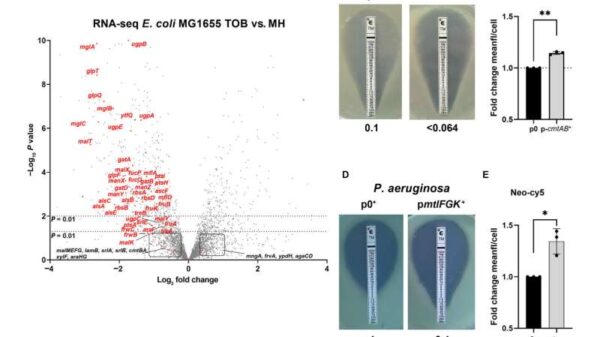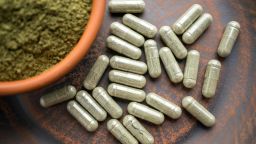Federal officials announced on July 15, 2023, their intention to classify 7-hydroxymitragynine, commonly known as 7-OH, as a Schedule I controlled substance. This decision, made by the US Department of Health and Human Services and the Justice Department, aims to combat the rising health risks associated with this potent semisynthetic opioid, which has been found in various consumer products such as gummies, drinks, and dietary supplements.
The classification of 7-OH, which is derived from the kratom plant, highlights the substance’s potential for addiction and overdose. According to the FDA, while kratom itself can act as a stimulant in small doses and is sometimes used to alleviate opioid withdrawal symptoms, products containing concentrated levels of 7-OH pose significant health risks. FDA Commissioner Dr. Marty Makary emphasized, “We are not targeting the kratom leaf or ground-up kratom. We are targeting the concentrated synthetic byproduct that is an opioid.”
Concerns regarding 7-OH have intensified in light of a troubling increase in reported overdoses and emergency room visits linked to its consumption. Jim O’Neill, Deputy Secretary of Health and Human Services, noted that these products are frequently sold without adequate dosage controls or health warnings, exacerbating the risk of addiction.
Rising Health Concerns and Regulatory Actions
The FDA is advocating for 7-OH to be designated as a Schedule I substance, which includes drugs such as heroin and cocaine, defined as having no accepted medical use and a high potential for abuse. This classification raises questions about the regulation of kratom itself, which contains lower levels of 7-OH. While kratom products are not currently subject to strict regulations, the FDA’s focus is on the more dangerous synthetic derivatives.
In a recent statement, Dr. Makary acknowledged the challenges in regulating natural kratom, citing physicians’ concerns regarding its addiction potential. He stated, “We have to prioritize what we work on, so we are going after the killer first, which is the synthetic, concentrated kratom.”
As part of its efforts, the FDA issued warning letters to seven companies marketing 7-OH products on July 15, reiterating that it is illegal to incorporate this substance into dietary supplements or food items. Regulating these products has proven difficult, as kratom remains readily available in smoke shops and convenience stores across the country.
Debates on Safety and Regulation
The debate surrounding the safety and efficacy of kratom continues to garner attention. In a recent op-ed, former CDC Director Dr. Robert Redfield argued that natural kratom leaf, used traditionally for centuries, poses a markedly different risk profile compared to synthetic products. He suggested that health agencies should not need to create new guidelines but rather adopt standards from recent legislation.
The FDA has previously declared kratom an opioid, with then-Commissioner Dr. Scott Gottlieb stating in February 2018 that there is no evidence to support its safety or effectiveness for any medical use. The agency continues to caution against its use until thorough safety evaluations can be conducted.
During the recent HHS event, Melody Woolf, an advocate for chronic pain sufferers, highlighted her positive experiences with natural kratom, stating, “I was so grateful I found a botanical called kratom. It was kratom only, the powdered leaf, that saved my life.” Her comments reflect a growing concern within the community regarding the potential consequences of restricting access to natural kratom while targeting synthetic derivatives.
Opposition to the federal crackdown has emerged from advocacy groups. The Holistic Alternative Recovery Trust expressed skepticism about the government’s claims, noting the absence of concrete public health data linking 7-OH to specific fatalities. Jeff Smith, the group’s national policy director, stated, “Cutting off access helps no one, but it will hurt many,” highlighting the importance of engaging with researchers and experts in addiction science.
As the situation evolves, health officials are also exploring educational campaigns and research initiatives to better understand 7-OH and its impact on public health. The ongoing discussions about the regulation of kratom and its derivatives will likely continue as government agencies seek to balance public safety with the needs of individuals who may benefit from the natural herb.




































































